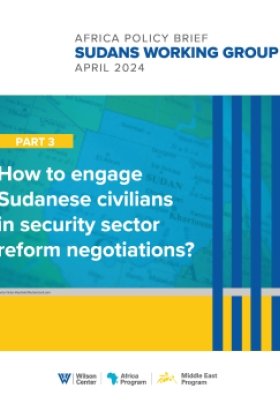Russia: Department of Energy Programs and Activities
Bill Richardson has served as Energy Secretary since August of 1998. Previously, he was U.S. Ambassador to the United Nations from 1997 to 1998 and a U.S. congressman from New Mexico for seven terms. He is the highest-ranking American of Hispanic ethnicity in the Clinton administration.
As Secretary of Energy, he has earned praise for his active, hands-on management style. He has streamlined the Department's management structure; strengthened its security procedures and counter-intelligence; led the Administration's efforts to combat rising oil prices and enhance domestic energy production; and launched a new climate change initiative to work with developing countries to reduce greenhouse gas emissions.
Richardson's career has included substantial work in foreign affairs. Prior to being named Ambassador to the UN, he established his credentials as an effective international diplomat while acting as President Clinton's special envoy to a number of trouble spots -- including North Korea, Iraq, Cuba, and Sudan, where he negotiated the release of hostages, American servicemen, and prisoners. For these efforts, he has been nominated three times for the Nobel Peace Prize.
We are blessed to be alive today in this time of peace. Great leaders have emerged onto the world stage that Wilson helped build when he created the League of Nations. From Dag Hammarskjold to our friend in New York right now, Kofi Annan, these humanitarians and others have helped our world by expanding the legacy of Woodrow Wilson.
This has become exceedingly difficult in a world of increasing change. Staggering change is taking place in Russia and the countries of the former Soviet Union. I was in Russia and Ukraine last week with President Clinton, and the change underway is advancing more rapidly than even my last trip there -- just nine months ago.
This Center is a terrific forum for grasping this change. I saw that you held a lecture last week called "Understanding the Challenges of Russian Culture: Recognizing Problems and Responding Effectively." Today, I want to address how the U.S. and Russia are re-examining another "culture" -- one that flourished for over forty years: that of the Cold War.
Our meetings in Russia last week continue our pursuit of a new "culture" -- one dedicated to the eventual end of weapons of mass destruction.
First: on arms control. Skeptics deride arms control as antiquated. On the contrary, arms control has helped lock-in agreed, verifiable constraints on U.S. and Soviet, and now Russian, strategic nuclear capabilities. It is an idea that has worked, continues to work, and that will work tomorrow.
Presidents Clinton and Putin discussed strategic arms control at great length during the Moscow Summit. They signed a joint statement on strategic stability, reflecting our shared interest in preserving strategic nuclear stability and mutual deterrence. It was also agreed that we would continue talks over the summer on a START III agreement and possibly modifying the ABM Treaty, in accordance with the Moscow Statement of 1998 and Cologne Statement of 1999 by the Presidents.
The second, critical component in our helping to avoid a return to the nuclear brink is in our joint work reducing proliferation threats. President Clinton created one of the strongest pillars in our national security when he launched the Expanded Threat Reduction Initiative -- designed to address the new proliferation challenges that arose with the Soviet Union's fall.
A week ago Sunday, Presidents Clinton and Putin announced conclusion of one of our most important threat reduction actions: the U.S.-Russia Plutonium Disposition Agreement. This Agreement will result in the disposition of 68 tons of U.S. and Russian military-grade plutonium -- 34 tons per side -- eliminating material that might have been used to build thousands of nuclear bombs.
This Agreement builds on the approaches to such plutonium management and disposition agreed to at the 1996 G-8 Moscow Nuclear Safety and Security Summit. Now, it won't be easy -- or cheap. It will take twenty years and billions of dollars to carry this Agreement out to the letter -- but that is what we plan to do. We're going to need international financing for the Russian effort, which we expect to discuss at the G-8 Okinawa Summit next month.
So we have broken ground on military plutonium. Now, we need to do the same on the civil side. As some of you may know, we are discussing with Russia an important new initiative to end the further reprocessing of civil plutonium.
Under the proposed initiative, we would:
* halt further separation of Russia's civil plutonium from spent fuel for at least twenty years;
* help Russia construct a dry storage facility for spent fuel to alleviate their need to reprocess this material;
* cooperate on the science underlying the geological disposal of spent fuel and nuclear waste; and
* pursue proliferation-resistant nuclear fuel cycles and technologies.
During my trip with the President, I was able to tackle still other issues that aim toward our bettered security. On June 3rd, I joined Russian Minister for Atomic Energy Yevgeniy Adamov to sign a protocol that extends our agreement on the Exchange of Technical Information in the Field of Nuclear Warhead Safety and Security (WSSX).
This Agreement gives us the legal underpinnings for technical cooperation on the safety, security, and physical protection of nuclear weapons during their transport and dismantlement. It is also complementary to discussions held under the 1996 Moscow Protocol on Technical and Scientific Cooperation under a CTBT (Comprehensive Test Ban Treaty).
Let me take this opportunity to state clearly that this Administration remains committed to ratification of the CTBT. I cannot express the depth of our disappointment with the Senate decision to reject the CTBT. But perhaps history can offer perspective, for the Senate's vote against the CTBT was the first such Senate rejection since the 1919 treaty championed by President Wilson, establishing the League of Nations. 80 years later, Wilson -- the so-called "schoolmaster in politics" -- would likely give the Senate a failing grade.
And there is so much more work to do. I will be in Russia again next month -- and I hope to advance these initiatives when I am there. I will also participate in the commissioning of a Russian Far East site where we're working with Russia's Navy to protect their highly enriched uranium stores -- a new element of our broader cooperation.
And I will also take part in a ceremony marking the downsizing of the Russian nuclear weapons complex. At the Avangard plant -- one of Russia's four nuclear weapons assembly and disassembly plants -- Russia just moved about a mile of security fencing and is now ready to open more than 500,000 square feet of formerly closed areas to commercial development. This is a signal achievement of our Nuclear Cities Initiative, and one that I believe will lead to still greater progress.
We must embrace such progress -- not shirk its irresistible force -- and encourage our counterparts to do so as well. Those who came before us -- who made the greatest difference -- not only embraced such change, but advanced it.
In his legendary "Fourteen Points Address," to the Congress, Wilson might well have been speaking across time to us here today. In that speech, Woodrow Wilson said, "The treatment accorded Russia by her sister nations . . . will be the acid test of their good will, of their comprehension of her needs as distinguished from their own interests."
Over our American history, we have shared the battlefield with Russia and we have stared across an abyss of obliteration, opposed to her. Great change is taking place in that nation today, and we must join our hands with theirs to make it the best possible change for the Russian people, the American people, and the world.
As Wilson said, "some may call me an idealist." Well, I do think that a world free from nuclear terror is an ideal -- and one worth our hardest work. We are privileged to live in a country where we are able to help bring that ideal to fruition. If that's being an idealist, then I join Wilson as proud to be one.









